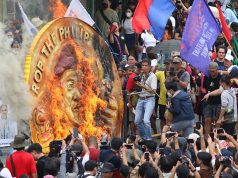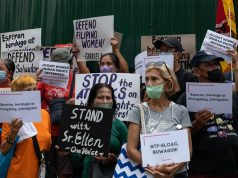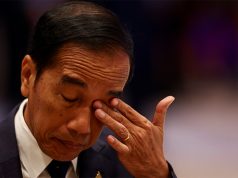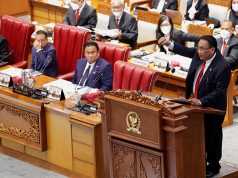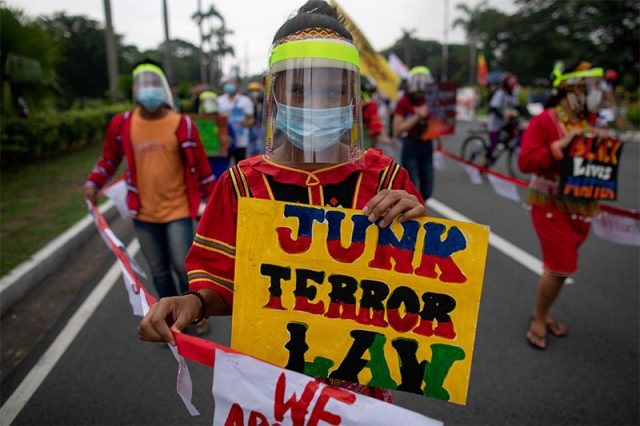
MANILA — The Supreme Court said on Thursday parts of a anti-terrorism law passed last year were unconstitutional, in a decision hailed by one of its opponents as a “partial victory”.
The controversial law, signed by Philippines President Rodrigo Duterte in July, 2020, has alarmed some lawyers and human rights activists who fear it could be used to suppress free speech and harass government opponents.
The law grants police and military sweeping powers to tackle security threats, but legal experts had warned its overly broad articles could open the door to discriminatory enforcement, privacy infringements and suppression of peaceful dissent.
READ: Public clamor to declare anti-terror law ‘unconstitutional’ launched after Duterte approves bill
A detailed breakdown of the court’s ruling was not immediately available.
The government had no immediate response to the decision. Panfilo Lacson, a senator and principal author of the legislation, in a Tweet prior to the ruling said he would graciously respect the outcome.
The court struck down a part of the law “for being overbroad and violative of freedom of expression”, it said in a statement.
Renato Reyes, secretary-general of the leftist Bayan (Nation) movement said: “Our main win from the SC ruling on the terror law is that activism is not terrorism. That is a partial victory for petitioners as protests and advocacy are not acts of terror.”
But, he said, “the dangerous provisions of the terror law remain and can still be abused by the anti-terror council”. —Reporting by Neil Jerome Morales, Karen Lema and Enrico Dela Cruz Editing by Ed Davies, Martin Petty






